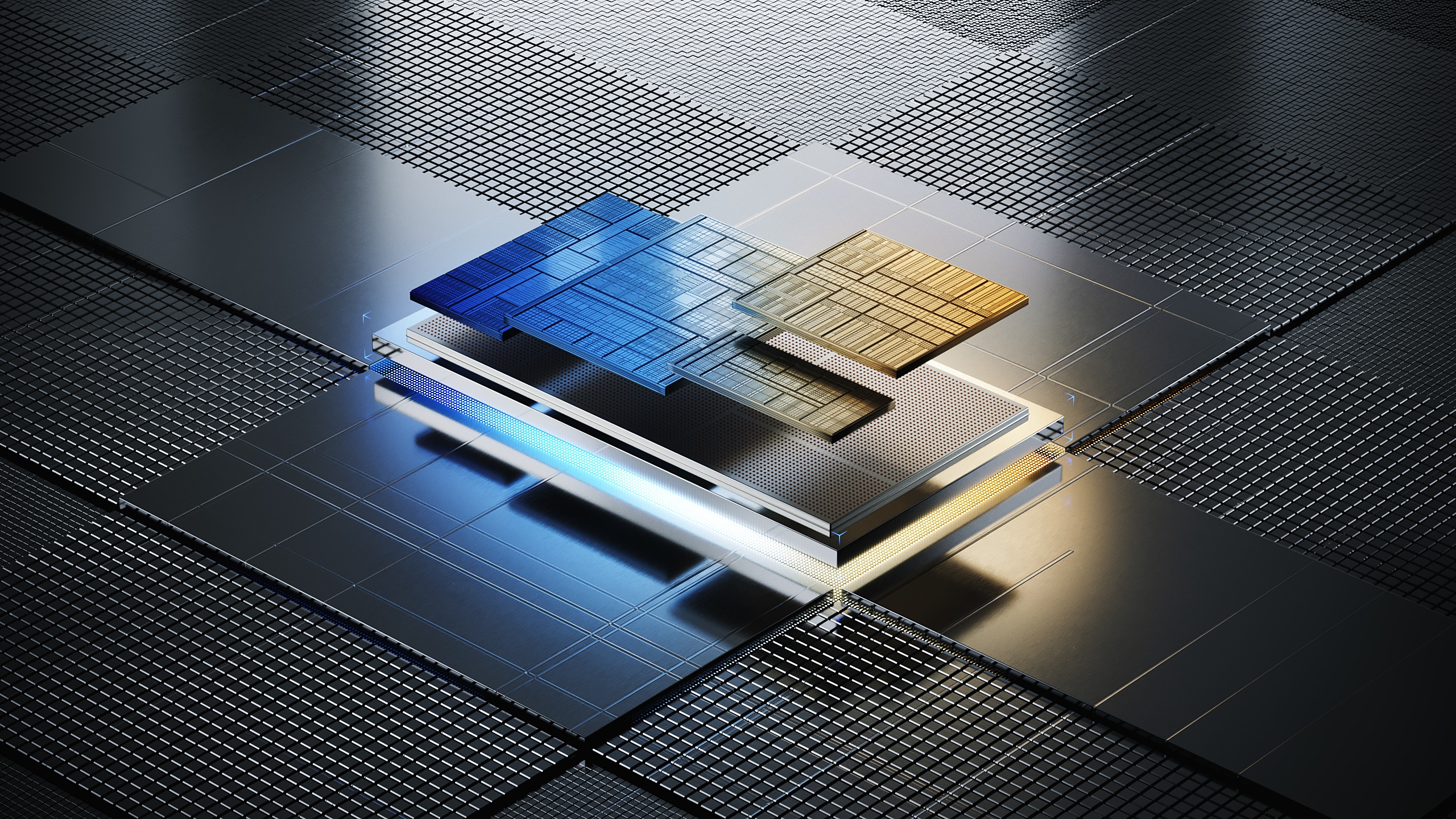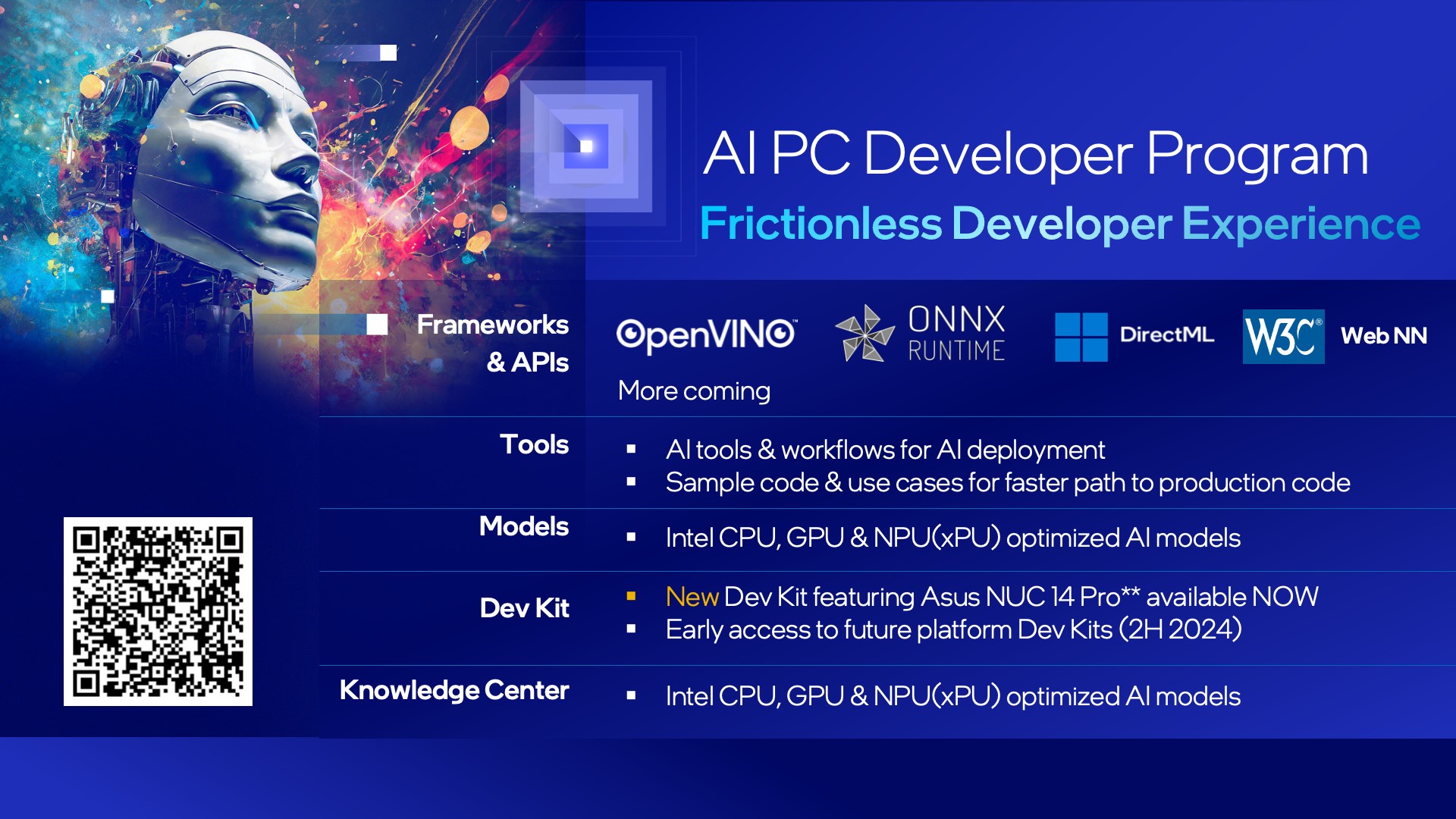 AI
AI
 AI
AI
 AI
AI
Intel Corp. is pushing for more developers to start coding for the next generation of “AI PCs,” launching a new AI Acceleration program for developers, it said today.
The chipmaker first delivered its AI personal computers, which are PCs customized to run artificial intelligence workloads locally, last December when it launched its new Core Ultra chip family, which combines a central processing unit, graphics processing unit and neural processing unit into a single chipset to deliver AI acceleration.
Following that launch, a number of major PC brands have announced PCs and laptops that can perform AI-accelerated tasks such as real-time video editing. A number of big software providers, such as Adobe Inc., Cisco Systems Inc. and Zoom Video Communications Inc., have also taken advantage of the Core Ultra chips, but very few everyday applications have been made more powerful by the presence of Intel’s NPUs.
That’s what Intel is trying to change. Last year it announced an AI PC Acceleration program for larger software companies, and now it’s expanding it to small and midsized software shops.
“We have made great strides with our AI PC Acceleration Program by working with the ecosystem,” said Carla Rodriguez, Intel vice president and general manager of client software ecosystem enabling. “Today, with the addition of the AI PC Developer Program, we are expanding our reach to go beyond large ISVs and engage with small- and medium-sized players and aspiring developers. Our goal is to drive a frictionless experience by offering a broad set of tools including the new AI-ready Developer Kit.”
With the expanded AI PC Acceleration program, developers will find a software development kit that provides access to various AI frameworks and libraries, including Intel’s own OpenVINO, the Open Neural Network Exchange, DirectML, WebNN, plus various tools and workflows for deploying AI applications. The idea is to provide developers with a convenient, one-stop shop that contains everything they need to start building apps for AI PCs, including client-focused toolkits, optimized AI models, documentation, training and more, the company explained.
The initiative is aimed at fostering a new generation of AI-enhanced applications for PCs, but Intel warned that not all of these new apps will run so well on “regular” PCs that lack an NPU.

AI PC dev program infographic
Asked what this means for non-AI PCs, Intel told The Register that applications that have been optimized to run on NPUs will work best on such silicon. But if a PC doesn’t have an NPU onboard, most apps should still be able to run on the CPU or GPU. However, Intel added that some application features might be exclusively enabled for NPUs, meaning that “systems without an NPU won’t be able to run those features.”
In addition to the expanded AI Acceleration Program, Intel announced that developers can get their hands on a new Dev Kit based on ASUSTeK Computer Inc.’s NUC 14 Pro PC. The NUC PC was formerly Intel’s line of mini-PCs, but the company sold that part of its business to Asus last year.
Finally, the company announced a new program dedicated to independent hardware vendors that gives them the chance to optimize their AI PCs at Intel labs in the U.S., China and Taiwan, with continuous access to its testing and system integration processes.
“Intel has already onboarded 150 hardware vendors around the world into our AI PC Accelerator Program,” said Matt King, senior director of client hardware ecosystem at Intel. “We’re excited to scale our innovative hardware and software solutions to bring this momentum to our broad, open ecosystem of developers.”
THANK YOU